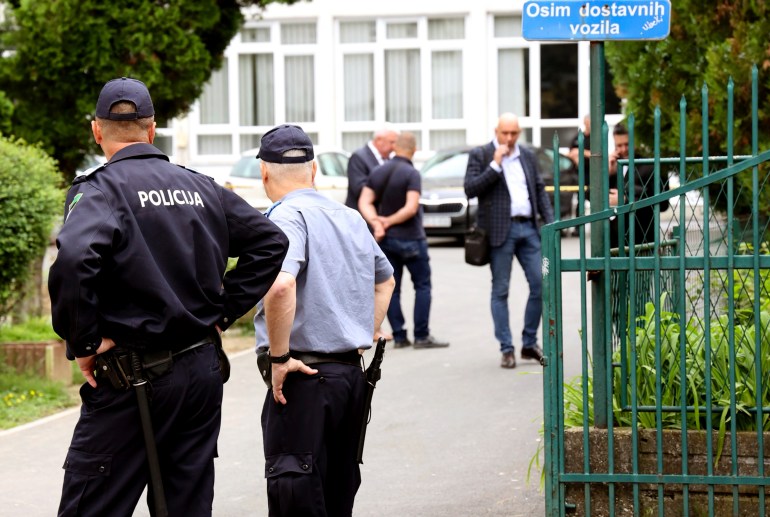The incident comes after two mass shootings in neighbouring Serbia showed the normalisation of violence in the Balkans.
“The child, who is not yet 14, is under police supervision in the premises of the Lukavac Police Department, while firearms and other discarded items are secured until the investigation begins,” the interior ministry of Tuzla canton said on Wednesday.
The attacker was a former student of the school and had been transferred to another school as a “disciplinary measure”, according to Bosnia’s Education Minister Ahmed Omerovic.
The wounded teacher, who has been identified as Ismet Osmanovic, taught English at the school and was intubated and being operated on, according to a statement by the University Clinical Center of Tuzla.
“The operation is still ongoing. Doctors told me he was stable,” Osmanovic’s father told local media.
Serbia mass shootings
Wednesday’s school shooting comes after two separate mass shootings in two days rocked neighbouring Serbia last month, killing at least 17 people, including eight children.
In an interview with Al Jazeera after the school shooting in Serbia last month, psychologist Marina Nadejin Simic said that the school shooting was “a red line” for the country.
“Unfortunately, in our society, violence is present everywhere around us and it’s tolerated. In a way, it’s a normalisation of violence … Those kids have become accustomed to living in such surroundings and some of them feel quite bad,” she said.
Adding to the problem is that “a lot of kids are a lot more online than in the real world”, leading to undeveloped emotional and social skills, Nadejin Simic said.

Wednesday’s violence has also reverberated in Bosnia where, according to a report by the Small Arms Survey, about 31 of every 100 citizens own a gun in the Balkan nation.
Most of these guns and other weapons were trafficked into the country due to an arms embargo during the war in the 1990s.
Since then, authorities have been trying to address the issue in an effort to tackle gun violence.
Last month, the European Union’s foreign policy chief Josep Borrell also highlighted the importance of controlling arms in the Western Balkans, according to a report by Euronews Albania.
At a meeting with EU officials he said: “We all know this activity is a great danger to our peace and stability. It’s a multiple threat and increases the risk of terrorist attacks as well.”
The 27-member bloc has so far invested 38 million euros ($41m) focusing on gun control in the Western Balkans.
